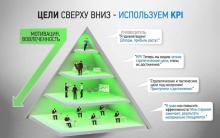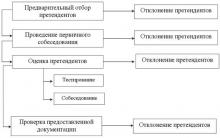From August 1994 to March 1995, he was the head of the real estate trade department of Freya CJSC. From March to June 1995, he was Deputy General Director of Virtus LLC. In 1995, he founded the Rosbuilding company, which he headed from June 1995 to March 1998. In 2003 he graduated from the Tolyatti Academy of Management with a degree in Finance and Credit.
Raider activity
In 1995, S. E. Gordeev created the Rosbuilding company, which by the mid-2000s became one of the major players in the Moscow mergers and acquisitions market. In 1998, the company gained fame in connection with the takeover of a number of large metropolitan department stores. The department stores “Moda”, “Moskovsky”, “Bucharest”, “Pervomaisky”, “1000 little things”, “Smena”, “Petrovsky Passage”, “Troparevo”, “Novoarbatsky” and a number of others fell into the sphere of interests of “Rosbuilding”. Since 2000, the company began to actively buy textile industry enterprises.
Government activities
On July 19, 2007, the Legislative Assembly of the Perm Territory elected Sergei Gordeev as the representative of the regional governor in the Federation Council. On September 19 of the same year, at a meeting of the Upper House of the Russian Parliament, S. Gordeev prematurely resigned as a representative of the Ust-Orda Buryat Autonomous Okrug in the Federation Council and was confirmed as a senator of the Upper House from the Perm Territory. After approval, the senator came up with a number of initiatives regarding the prospects for the development of Perm, including the development of a new master plan for the city, the creation of a bear zoo, a motor museum and a Baba Yaga museum, as well as the termination of auctions for large land plots, the construction of new roads and the design of a public transport system for Perm .
Russian Avant-Garde Foundation
In 2006, it became known that A. Ilkanaev, one of the heirs of the daughter of the outstanding architect K. S. Melnikov, sold half of the architect’s house-workshop, which is a monument of history and culture, to Senator S. E. Gordeev. The senator intended to transfer his part of the building into state ownership as soon as possible after the purchase, however, according to a statement on the website of the Melnikov House museum, this share currently belongs to the Russian Avant-Garde Foundation, headed by S. E. Gordeev.
Currently, the Foundation is carrying out preparatory work to create a museum in the Melnikov House.
Since the spring of 2007, the headquarters of the Russian Avant-Garde Foundation for the Preservation of Russian Heritage has been located in the building of the Burevestnik club. The foundation plans to create an International Center of Architecture (ICA) on the basis of the Burevestnik club. It is planned that the ICA will become a unique platform that will combine an exhibition space, a lecture hall, a library, and a cafe. The club building already hosts some of the events organized by the foundation. Thus, in 2007, open lectures on the stage of the Burevestnik club were given by the Dutch architect, Pritzker Prize winner Rem Koolhaas and the Italian architectural critic Luca Molinari. In addition, the club building houses restoration workshops where the archives of Soviet avant-garde architects are resuscitated.
On September 25, 2008, the exhibition of contemporary Russian art “Russian Poor”, initiated by S. Gordeev, opened in Perm. The curator of the exhibition was Marat Gelman. The exhibition was attended by artists Anatoly Osmolovsky, Avdey Ter-Oganyan, Yuri Shabelnikov, Vladimir Anzelm, AES, Valery Koshlyakov, Blue Noses and others.
Former senator and key owner of the PIK construction group Sergei Gordeev turned out to be an investor in seven foreign IT startups. The Bell found out about this.
In a conversation with reporters from The Bell, Gordeev said for the first time that several years ago he invested in the Chinese division of Uber, as well as in its competitor, the taxi ordering service Didi Chuxing. Didi Chuxing Corporation decided to buy Uber's Chinese business in 2016. At the time of the merger, the company's valuation was $35 billion; in December 2017, it grew to $56 billion.
Gordeev did not disclose the receipt, but noted that he usually invests up to $10 million in projects, less often - several tens of millions. The entrepreneur is glad he invested in Didi and expects the company's IPO in 2018.
It turned out that Gordeev’s portfolio also includes the Japanese game developer Nintendo (the businessman invested in the company before its capitalization grew amid the success of Pokemon Go); New York taxi ordering service Juno (in the spring of 2017, it was acquired by Israeli competitor Gett for $200 million); Standard Cognition, a company developing tablets that will replace cashiers in stores; startup Wonder, which creates a hybrid of a smartphone and a game console; American food delivery service Blue Apron, which held an IPO for $300 million in 2017. During the placement, investors valued the company at $1.9 billion, but now it is worth about $790 million.
The entrepreneur also revealed the name of the fund through which he invests in technology projects. This is a small American fund, Agnostic Ventures, with a volume of about $100 million. Its manager, Leon Zilber, was one of the top managers of the Russia Partners fund, which has been working in Russia since the early 1990s.
Gordeev intended to buy a stake in Magic Leap, whose creators are working on developing virtual reality technologies. Gordeev did not tell the publication’s journalists why the deal did not work out. He added that he considers preventive medicine and bioinformatics to be the most promising areas of IT, thanks to which “in the future there will be no diseases at all.” He has a startup of this profile in his portfolio: Color Genomics, which is engaged in genetic research into predisposition to various types of cancer.
Previously Firrma that in 2015 the entrepreneur invested $10 million in the Hyperloop vacuum train project, developed according to the idea of Elon Musk.
About Sergei Gordeev
Russian entrepreneur. Born in Moscow, graduated from the Academy of Management in Tolyatti. He was involved in real estate and banking, was the vice-rector of his native university, and a senator from Buryatia in the Federation Council. In 2007 - 2010 - representative in the Federation Council from the administration of the Perm Territory. Owns 75% of the shares of the PIK construction corporation.
The largest housing developer in Russia, Sergei Gordeev's PIK group, may receive a new project in Moscow. The company is discussing a possible partnership to develop about 320 thousand square meters. m in the industrial zone of the Western River Port
The PIK group of ex-senator from the Perm Territory Sergei Gordeev is negotiating the purchase of the project for the construction of the Western Port residential complex opposite Moscow City (the land plot is located on the banks of the Moscow River and is limited by Zarechnaya Street, Shelepikhinsky Bridge and Projected Passage), they told RBC sources in real estate and development companies operating in the area. Now the project is being implemented by Trading House “Shater” LLC, controlled by the family of the chairman of the Union of Georgians of Russia, Mikhail Khubutia. The residential complex is on the balance sheet of Port City JSC, which, according to the Unified State Register of Legal Entities, is 100% owned by Shatru.
The representative of Khubutia noted that Shater is negotiating with many companies, but no documents have been signed. A representative of the PIK group declined to comment.
“We are talking about purchasing more than 50% of the project, now the parties are in the final stage of concluding a deal,” says a top manager of a large real estate company. “PIK group managers are regularly present at the construction site of the residential complex,” says a top manager of another company. “It’s getting to the point where they are discussing demolishing the already built part of the project in order to build a completely new one in its place.”
The Western Port residential complex project involves the construction of 320 thousand sq. m. m on 10.7 hectares, notes Key Capital CEO Sergei Kamlyuk. Of these, the residential complex accounts for 176 thousand square meters. m, the rest should be occupied by an office complex, an apart-hotel and a kindergarten. The underground parking area is about 77.2 thousand square meters. m. Now the developer has received permission to build the first of five phases with an area of 64.7 thousand square meters. m, follows from company documents. The price of apartments here varies from 7.5 million rubles. up to 33.3 million rubles. According to CIAN, at the end of February 2018, 106 DDUs were registered in this residential complex, of which 35 were with a mortgage loan.
The volume of investment in the project can vary from 15 billion rubles. up to 20 billion rubles. without the purchase price, they will have to be repaid in a highly competitive environment, says Colliers International partner Vladimir Sergunin. Taking into account the sold area of 147.9 thousand sq. m. m, the developer’s revenue can reach about 31 billion rubles. (based on the average sales price of 210 thousand rubles per 1 sq. m), and sales will last for 7-8 years, predicts Tatyana Bokacheva, head of the research department at IRN-Consulting.
Competition in this area is represented mainly by objects in the “business” and “business+” segments, says Sergey Kamlyuk. “If PIK comes to the site, it will most likely build a “comfort class” project, which, on the one hand, will make it cheaper in terms of investment, and on the other, will increase demand,” Kamlyuk argues.
In the summer of 2017, the Kommersant newspaper wrote that the PSN group of the Ananyev brothers was interested in the Western Port project. However, it later became known that the parties were unable to reach an agreement.
The Shater Development website states that among its projects is the reconstruction of part of the Gostiny Dvor building into a hotel complex with an area of 15 thousand square meters. m (the company also manages the trade and exhibition complex of the same name), reconstruction of the Volga apart-hotel on Bolshaya Spasskaya Street in the center of Moscow (44 thousand sq. m), as well as construction of a hotel on Prechistenskaya embankment (16 thousand sq. m) .
PIK Group is Russia's largest housing developer. In 2017, the company sold 1.84 million square meters. m, gaining 216.1 billion rubles. The main owner of the group is its president Sergei Gordeev with a 74.6% stake. Another 7.6% belongs to VTB Bank; 17.8% of the shares are in free circulation on the Moscow Exchange.
Sergei Gordeev is a rather unusual person among Russian oligarchs. Along with the innovativeness of the projects, he relies on the preservation of cultural values. And this synthesis helps to go all-in. The businessman is one of the recent “residents” of the Forbes list, however, he has already received the title “Businessman of the Year 2016”. The oligarch with a fortune of $1,500 million is one of the largest developers in the Russian Federation.
Brief information:
- FULL NAME: Gordeev Sergey Eduardovich.
- Date of Birth: 22.10.1972.
- Education: Togliatti Academy of Management, specialty “Finance and Credit”.
- Date of start of business activity/age: 1995, 23 years old.
- Type of activity at start: Rosbuilding company, investments, mergers and acquisitions of real estate in Moscow.
- Current activity: President and main shareholder of the PIK construction corporation.
- Current state:$1,500 million (data from Forbes, 2017).
The secret of the success of Sergei Eduardovich Gordeev is... passion for his favorite business. This is how you can evaluate all his projects. The story of each of them evokes respect and interest in the personality of this businessman.
Excursion to the beginning
Sergey Eduardovich Gordeev, Russian by nationality, was born on November 22, 1972 in one of the capital’s maternity hospitals. There is no information about his education - it is only known that in 2003, as a major businessman, he graduated from the Togliatti Academy of Management, receiving a diploma in finance and credit.
Some brief excerpts from the beginning of the hero’s work biography:
- August 1994-March 1995 - he headed the department responsible for real estate trading operations at Freya CJSC;
- March-June 1995 - became deputy general director at Virtus LLC.
But administration, even at the level of a top manager, did not captivate our hero - he decided to “sail on his own.”
Becoming a businessman
In 1995, Gordeev, together with Dmitry Rodin, founded the Rosbuilding company. Her specialization is mergers and acquisitions taking place in the Moscow real estate market. The organization managed to become a leader in this part of the life of the capital (especially on industrial sites and sites allocated for the construction of shopping centers).
Gordeev always “kept his nose to the wind.” His talent prompted him to curtail the activities of Rosbuilding in 1998. This led to the fact that in the mid-2000s, already quite wealthy, the businessman founded the development company Horus Capital. The new brainchild was given the opportunity to develop activities in the territories of large plants and factories.

Photo 1. Gordeev always had his own vision of running his business - and it never failed.
Source: im3.kommersant.ru
Just look at the Stanislavsky Factory (Tagansk business center). The name is associated with the workers' theater built after the revolution at the factory of the industrialists Alekseevs (under the initiative of Konstantin Stanislavsky). Sergei actually reconstructed the theater building.

Photo 2. The same business center “Stanislavsky Factory”.
Source: officeagency.ru
“Stanislavsky's Factory” brought its creators worldwide fame - Gordeev and the English architect John McAslan, who worked with him, were awarded the RIBA award (from the Royal Institute of Architects). Nomination - best international project of 2011.
Investment projects
The next interesting idea of Gordeev and Rodin was the investment organization “Platform”. It was created for financial investments in real estate of the residential and commercial spectrum.
Gordeev’s instinct did not let him down with the purchase of a plot of land in Salaryevo - a little later a metro station was built there. Gordeev is developing a design model for the construction of a trading house and a residential complex - even the nearby landfill does not become an obstacle. There is no more garbage, but there is a beautiful residential complex “Salaryevo Park” with an area of 600,000 sq. m. meters.

Photo 3. Residential complex "Salaryevo Park".
Source: novostroyki.org
Platforma’s portfolio also included the almost completed River Mall shopping center (purchased from the Bank of Moscow). And together with Michel Pascalis (founder of MLP warehouse construction), plans were made for the development of trading floors in cities with a population of 100,000 or more people.
And already in 2010, Gordeev “says goodbye” to “Factory”, selling it and 10 other objects for debts to the family and the O1 Properties company. The total amount of transactions amounted to $1.2 billion. Sergei received only half of the amount in cash (the other part went to pay off the debt). And again his instincts did not let him down - soon the dollar rental rates for Moscow B-class offices fell by half.
Also in April 2010, Gordeev became a co-owner of the Otkritie financial corporation. He buys controlling shares from VTB.
Closer to 2013, Sergey Gordeev left the shareholders of the Platform. Rodin becomes its sole owner. Our hero plans to focus his efforts on the strategic development of the new “brainchild”.
At the peak of popularity
2013 was marked by a new deal - in December, Sergei bought from the Suleyman Kerimov Foundation a 19.9% stake in OJSC PIK Group of Companies. At that time, the company was one of the largest developers in the field of housing construction.
According to the businessman’s recollections: “I bought it almost spontaneously... I was lucky. And only then did I begin to understand the essence of the matter. In the plans, it was decided to create a company that could efficiently construct large volumes of residential buildings according to all technological parameters.”
The persistent Gordeev always achieved his goals: if at the time of purchase the share package was valued at less than $300 million, then three years later the cost of PIK increased by 25%. The businessman increased his own share to 29.9% - now his value on the market was equal to $850 million.
And in the summer of 2014, Gordeev assumed the position of president and chairman of the board of PIK Group. His salary is... 10,000 rubles.
PIC phenomenon
While supply in the field of commercial real estate exceeds demand (and at the same time prices are falling), PIK’s capitalization figure is moving up. At the same time, the company also publicly declares its desire to achieve more. Here is Sergei’s statement on this matter: “We are simply very attentive to the product and its design - better than our competitors.”
Gordeev's dream is to become something like the Apple of home construction.
And here’s another “trick” - the company never attracts specialists from outside, all projects are developed by its own specialists. This has borne fruit - even buildings erected using the industrial method bear little resemblance to old Soviet panel samples. The company places a serious emphasis on aesthetics.

Photo 4. Logo of the PIK Group of Companies.
Source: reguide.ru
By the way, Gordeev is making serious bets on production automation in this very method. For example, the company was developing software for automatic house design.
The oligarch’s words do not diverge from the deeds - the company demonstrates more and more stable positions in the market every year. PIK is called a leader in its industry.
But here’s what worries investors: PIK is a completely non-public company, there is no trading in securities, after the arrival of our hero, press releases about changes in capital stopped being sent out. Gordeev does not deny the problem, promising to sort it out.
Acquisition of Morton
In 2016, the entrepreneur concludes another profitable deal - he personally buys the Morton company, and then... sells it to the PIK group (literally a ruble more expensive). Such a multi-stage approach was necessary because “it was necessary to decide quickly, but at PIK they always think and weigh everything for a long time” (quoting the entrepreneur).
A little background: contracts from the Russian Ministry of Defense (construction of housing for the military) helped Morton to become a big “pike” from a small Moscow region developer. Budget money greatly saved the situation during the crisis. And already in 2015, the company became a very large developer, commissioning 947,000 sq. m. meters of housing (PIK, for comparison, built only 665,000 sq. meters).

Photo 5. The acquisition of Morton opens up new prospects for Gordeev.
Source: cdn4.img.ria.ru
The offer to purchase the business came to Sergei Gordeev during his meeting with the owner of Morton, Alexander Ruchev - he offered to cooperate or merge. Everything happened unexpectedly, but the deal took place. It turned out to be beneficial for Morton - the company was already facing the risk of bankruptcy (due to high debt levels and falling sales). This is confirmed by statistics: 1 million square meters were built. meters, and no more than 700,000 were sold.
The combined structure has big plans - if there are no restrictions on production capacity, then in 2018 the company will be able to put into operation 2.5 million square meters. meters of housing. No one has built so much since the collapse of the Soviet Union. PIK has every opportunity to use the powerful Morton potential - the huge base of the land bank.
However, such a scale also has its drawbacks - the actual merger of two companies increases the risk of market capture, and this already indicates monopolization. This phenomenon is especially dangerous during the construction of large objects. Another point: Morton is a company with an opaque structure and financial flows. And this is already fraught with the risk of investors moving away from PIK.
Civil service
Back in July 2007, by decision of the Legislative Assembly of the Perm Territory, Gordeev was elected as the governor’s representative to the Federation Council. But already on September 19, he relinquishes these powers ahead of schedule. However, he does not leave politics - Sergei Eduardovich is confirmed for the post of senator of the Upper House from the Perm Territory.

Sergey Gordeev
President, main shareholder of the PIK Group of Companies
PIK Group of Companies, the largest Russian developer 22 years in the real estate market
16 million m² of real estate built
13,000 employees
Revenue for 2016 - 101.2 billion rubles
Other assets Investment company "Horus Real Estate Fund"
“A city is a place where culture, leisure, work and housing are combined into a single territory. If there is no work and leisure, then there will be a residential area and a ghetto, of which we already have enough.”
Politics is when you think a lot not about what you want to do, but about what others need
- We are visiting Sergei Gordeev, shareholder and owner of the PIK company. Hello! What's in your office?
Hello! Here we have a central office and an apartment store. In the exhibition hall we show models of objects and the dynamics of construction.
- In which building of yours would you buy yourself an apartment? Which house is the best?
I don't think about a better home, but I think about the service and the product as a whole. When we build each project, we refine the idea of the ideal home and constantly improve and add something new.
For example, in the Vander Park project, together with Dutch architects, we are building a low-rise and high-density quarter - we are implementing the idea of Dutch development.
- You are now a developer, but you were once in politics. Tell us about this experience. Do entrepreneurs need to be involved in politics or is it not necessary? What inspired you?
Based on my experience, I would not recommend going into politics. I was a politician when everything was good - from 2005 to 2007. There is a saying that a pig can fly high if it is caught in the middle of a hurricane. It was just that there were hot pre-crisis years, and everyone was great.
I was an idealist and wanted to do something for the country, for my region. And I was invited to work on the team by Oleg Chirkunov, who was then the governor of the Perm region.
Politics and entrepreneurship are different environments and require different qualities from a person. Businessmen are better off doing business, because in business much more depends on you personally than in politics. There are too many variables in politics that do not depend on you, you have to think too much not about what you want to do, but about what others need.
In business we wait 2-4 years for some result, and in politics - in cycles of up to 20 years. Politics is not a project, but destiny. If you decide to become a politician, then you have to do it, with or without success.
That is, Trump could only happen in the USA, where there is an absolute cult of entrepreneurship and real freedom. In my understanding, politicians are people who never say what they think. And entrepreneurs, especially American ones, say what they think. And the only country where a person who speaks his mind and becomes president is America.
Yes. There was an interesting article recently comparing Trump to Reagan. Reagan was an actor, and Trump is also a showman. Now you, as a person who is not only a businessman, but also a showman, have a chance to get into politics.
Sergey Gordeev is a Russian entrepreneur, president and main shareholder of PIK Group. In 1995, he founded and headed until 1998 the Rosbuilding company - the restructuring of industrial enterprises into shopping centers. In 2005 he created the development company Horus Capital. In 2006 he established the “Russian Avant-Garde” fund for promoting the preservation of cultural heritage. In 2007-2010 he was a representative in the Federation Council from the administration of the Perm Territory. In 2016, he bought the Morton company and became a co-owner of PIK Group.
Date of Birth: November 22, 1975Education: Tolyatti Academy of Management, 2003
Equity:$1.5 billion (according to Forbes in 2017)
The coolest people in the world right now are CEOs
- Let's talk about you. You returned to PIK and are now CEO, that is, general director. But before you were always a shareholder, no one knew about you. And now you are in control. Tell us what your biggest challenge is, why you did it, and what the biggest difference is between a CEO and an owner.
Being the CEO of a company is the most interesting challenge. The coolest people in the world right now are CEOs.
If we discuss the heroes of our time, then once they were artists, scientists, then they were engineers. And now the most difficult job is that of the general director. It is so multitasking, there are a huge number of variables in it, because the world is changing very quickly, you need to constantly adapt. You need to be a pilot of an airplane and constantly adjust it in the air, without landing on the ground to do this.
- Why did you decide to manage a big company?
I took the plunge because in the development business the owner has to be in the driver's seat. For a company to grow and improve its performance year after year, the owner must be in the position of CEO. Development is similar to innovative companies. Look at the great companies in Silicon Valley, where the owners are always the CEO.
- How do you form a team? What are your principles?
We develop people within the company, there is internal growth. If the team is committed to internal development, then people grow and solve more complex problems. You can invite new people who grew up in this culture. They will bring a different vision, which means that complex problems will be solved faster. I think this approach is correct.
- Are you learning to be a CEO yourself? What books do you read, what do you study from?
I study what interests me. You can even just set up a news feed on your social network and read useful things. Books are not the main thing, the main thing is communication with smart people. With those who make the product themselves, who create companies and are responsible for some important areas.
I don’t believe in classical education because knowledge becomes outdated. I myself have an unfinished higher education.
A house is not only an entrance, an elevator and an apartment, but also a yard and a neighborhood. It’s difficult to build a district
- In one interview you said something about Apple’s housing construction. Can you tell us more about what you meant?
I'll start from afar. Now is a time when many industries are being destroyed. For example, Uber questions the need to own a car. People who predict the future believe that we don't need cars. We will simply call them like robots when needed.
The same goes for housing. We are at a point where construction technology and lifestyle concepts are about to change dramatically. We at the company have set a task: to reinvent housing.
Construction is a conservative industry. We just need to do what the customers want. But that's not true. For example, everyone wants loggias, but uses them as storage. A room with a loggia has 40% less light, which is harmful. That's why we abandon loggias and make large windows. And in the basements of our houses we make storage rooms where you can store everything that is stored on the loggias.
Or many houses are ruined by air conditioners. Our task is to make houses that will not have the problem of air conditioning. On the facades we design niches or metal boxes where residents will install their air conditioners.
At PIK we are trying to reimagine the house, piece by piece, to create a new way of life. We want to build a dream home that is pleasant to return to every day. And a house is not only an entrance, an elevator and an apartment, but also a yard and a neighborhood. It is difficult to build a district.
- Why do you think that in our country no one will build districts like Berlusconi did in Milan?
Do you think these are good areas?
- Towns. For its time it was cool. Nobody builds such mini-towns here.
We love such mini-towns, the entire Moscow region is in them.
The main problem is that such a project is difficult to make. There is such an English concept: live, work and have fun. Housing can be easily built, but it is difficult to create work and cultural and leisure places in one area.
A city is a place where culture, leisure, work and housing are combined into a single territory. Otherwise, it will be a residential area, it will be a ghetto, of which we already have enough.
- Only Innopolis, probably in Tatarstan, can boast of such a concept.
Yes, they are great. The majority of our population strives for high-density multi-storey buildings. And in America, for example, this is a very small percentage of housing; everyone wants to live in their own home. A private house is a household unit. And not like ours - an apartment.
- What else can really destroy the multi-apartment building construction industry?
Innovative transport like the Hyperloop. If you can move at a speed of a thousand kilometers per hour, then why live in the city? You can live in a house, in an eco-friendly place 500 kilometers from the city, and spend half an hour every day on the road to work and back.
Perhaps such technologies will destroy the usual construction. I'm investing in Hyperloop, by the way.
- I believe that online technologies will destroy the usual way of working of banks and other companies. More and more people will buy and pay on the website, rather than coming to the office. Even applying for a mortgage on the website will be easy.
Agree. But they will still want to come and feel the apartment, but you can fill out the documents on the website.
We try to make sure that through the site a person can get the maximum amount of information so that he can do everything he needs on the Internet. And then just come and see what he bought. If necessary, get a mortgage on the website in three clicks. Mortgages on the terms that we currently have in the country, with an initial payment of 30%, should be issued to everyone. In terms of payment culture, our country is one of the most advanced in the world; we have very few debtors. People pay well.
I don’t want to build Mytishchi so that my children will own it later
- How did you earn your first money?
I made my first small money selling Snickers in Moscow. He sold on the street, bought a box, resold the blocks in a tent. And then I found an opportunity to try myself in real estate. And since then I have remained in real estate.
There is an opinion that real estate is the best, most profitable business. I have an example. Once upon a time, Natasha Vodianova introduced me to her previous husband, Lord. We walked around London, and he told me: “I haven’t worked all my life. Do you see this quarter? It belongs to my family, so we haven’t worked for several generations.” That's why I realized that real estate is cool.
No. Real estate was profitable in the mid-20th century. When wealth is passed on to children, it only spoils them. You know, this doesn’t evoke any emotions in me. I don’t want to build Mytishchi so that my children will own it later.
- You now own the largest development company in the country. And what will happen next?
Have you read the book about the blue and red ocean? It turns red when the sharks have bitten each other, the ocean is oversaturated with blood - the market is oversaturated, competition is high.
And in the blue ocean there are no competitors. We are constantly looking for places to develop business where no one else exists. We have several startups that are growing very well and which I think will become our next big business in parallel with the one that already exists.
- This is a program about business secrets. Reveal the secret.
No. When the startup grows to a large level, then we will reveal the secret.
- Just imagine, a young businessman from Mytishchi is watching you. He wants to benefit the country and earn money for his family. Please advise what he needs to do right now?
Defend your interests. Listen to yourself, believe in yourself, do what you want, don’t do what others want. Do your own business. The one you want, the one you believe in. The one you like, not the one that is fashionable now. Because what is already fashionable now is something that is already ending, and what will be fashionable tomorrow is something that no one understands now. Anticipate the trend.
Facebook recently turned 13 years old. The company set the trend for social networks in 2004 and hit the bull's eye. And now everyone is working on artificial intelligence, it’s fashionable. We need to do something else that isn’t there.











Celebration of Knowledge Day in children's library N3
UIS in the field of procurement: what is it, what is it intended for?
Forecasting using Excel (Excel models examples methods)
Theater ticket distribution
Release of working capital Working capital release ratio formula